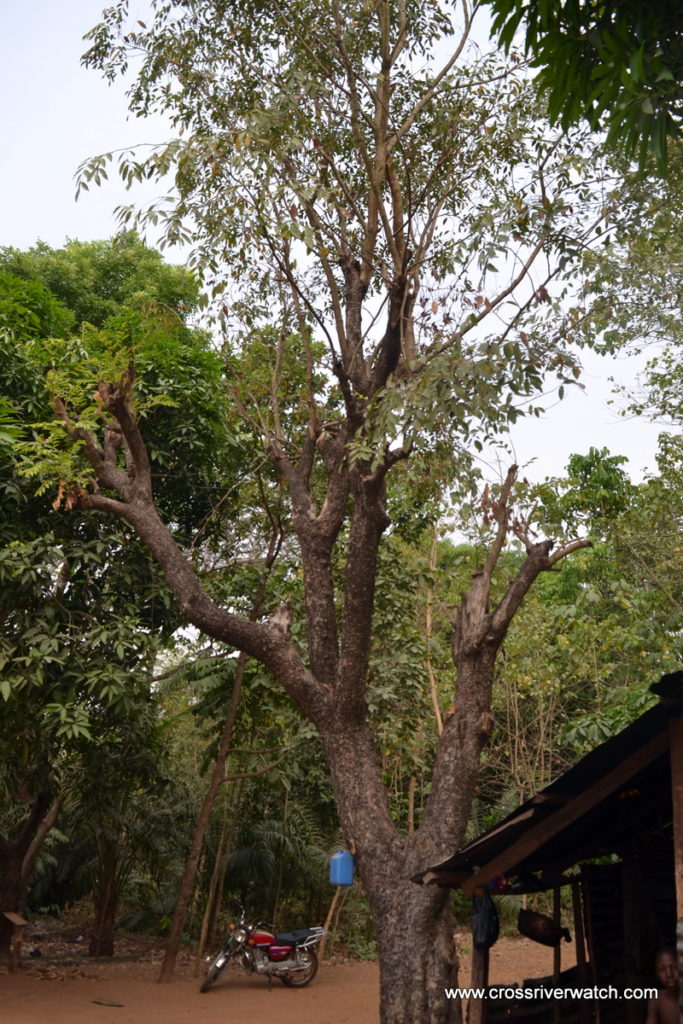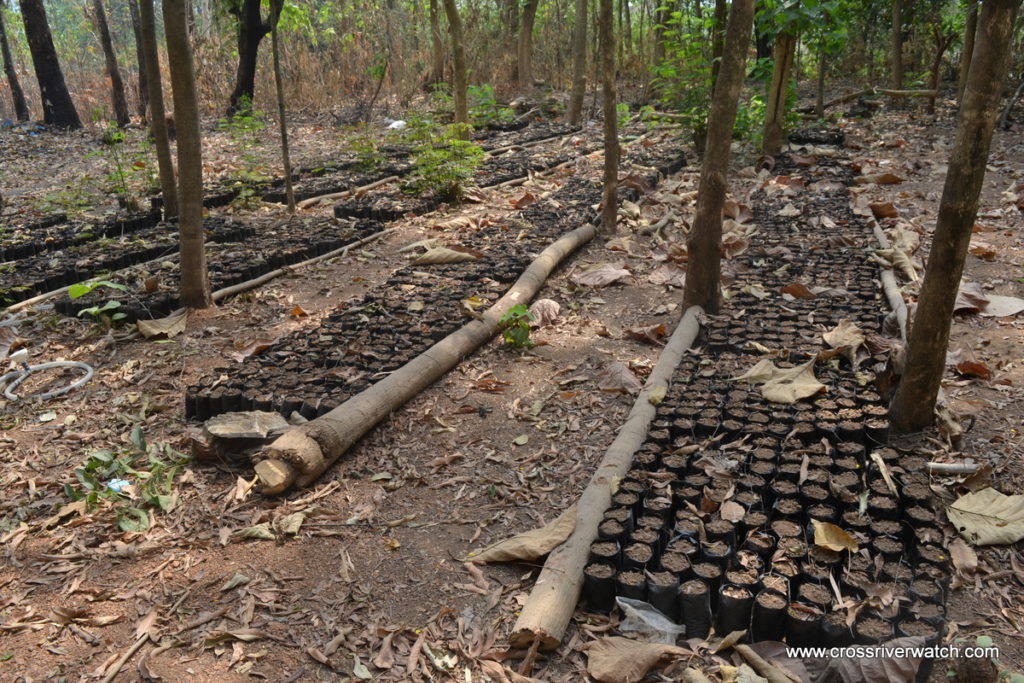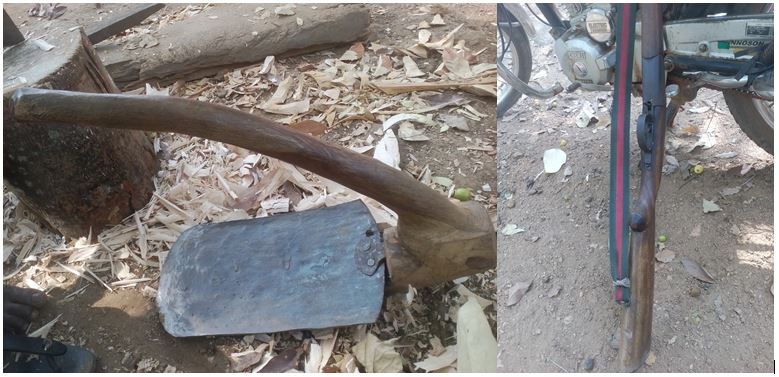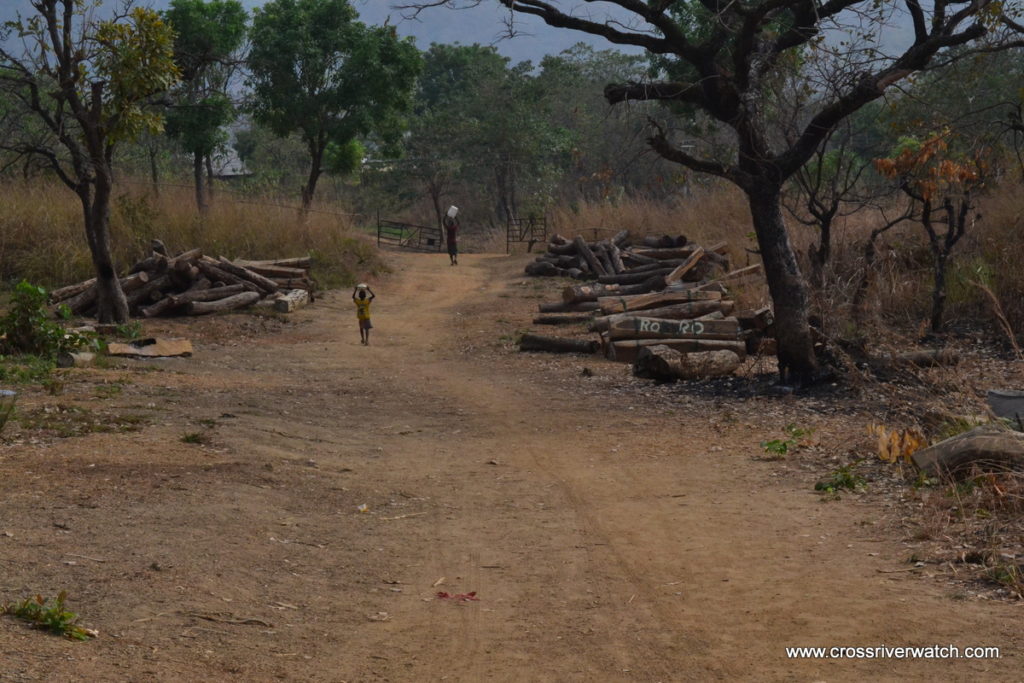By Jonathan Ugbal

A specie of tree known as ‘Madrid’ which produces hard wood that does not rot has been massively logged successfully in Obudu and Obanliku local government areas of northern Cross River State investigations by CrossRiverWatch reveal.
Madrid as it is referred to; is known as ‘Unanu’ in Bette which is the dialect of part of Obudu and ‘Inam’ in parts of Obanliku which both are over 300 kilometres North East of Calabar, the capital city of Cross River State.
“The wood is a hard wood that grows in sub-tropical regions and mainly mountainous areas from the southern Benue belt to the Obanliku area and some scarce population in Obudu” said a senior forestry official (names withheld) to CrossRiverWatch.
The Forestry Commission does admit that logging occurred but denies it happened in a major scale.
Findings revealed that the tree was been sold between NGN5000 and NGN7000 in Ukpanya area in the boundary between Ukworotung and Igwo, as well as Ohong, Ukorshie and Ukwel-Obudu villages in Obudu and NGN4000 and NGN6000 in Bebi village of Obanliku with quarrels breaking out between some youths and locals over the ownership of the trees which was been carted away in trucks at night with a Korean whose name could not be ascertained handling the transactions.
Indigenes fell the trees at mountainous areas which were then rolled down to the bottom by youths paid between NGN50 and NGN300 before being loaded into Land Rover Defenders which then transported to the roadside for bigger trucks to pick up which often came at night covered in tarpaulin.

The reason why the trees were being purchased could not be ascertained also with the Forestry Commission saying there is no data on the tree as no research has been carried out on it until now where efforts are being made with the Forestry Officer in Obudu who simply gave his name as Joseph saying he has arranged over 6,000 polypots for the Madrid tree for afforestation to replace the depleted population which will be studied.

However, the locals say they have being using it to carve guns and other wooden tools. The bark of the tree once peeled produces a red pigment which locals say is used in the manufacturing of paints.

“It is a hard wood which can be used to carve the wooden part of guns, hoes and even grinded by machine to produce a certain type of roofing sheet” said Ugbe David, a native of Begiage, Ukwel-Obudu community of Obudu who is also an officer of the Nigeria Security and Civil Defence Corps.
“That is what was used in carving the wooden part of my fire (pointing at his dane gun) and the hoe I have being using for over 20 years now.
“The tree does not rot, it only gets brown after someone peels it and if you like soak it in water for 100 years, it will come out and start a new life again” David said.

Asked if they will sell again knowing that it was illegal to do so and it was used in producing dangerous weapons, indigenes agreed, saying that; “After harvesting my yams, I will fell the remaining ones and wait for them to come back because business was good” said David while another who simply gave his name as ‘I dey hot’ said; “Selling these trees has helped me rebuild my house that collapsed due to incessant rainfalls.”
The Cross River State Government placed a ban on logging which the incumbent Governor, Benedict Ayade, a former national legislator lifted partially explaining that the state will not just “conserve” but “manage” its forest reserves to derive maximum benefits.
However, the corruption within the rank and file of the Forestry Commission has seen efforts to combat illegal logging yield little or no results with a truck load of the said Madrid trees impounded by the Forestry Office in Obudu let go after the sum of about NGN800,000 was allegedly paid to the Obudu division of the Nigeria Police Force which held the truck following an alleged directive from ‘Calabar’ (the head office of the Forestry Commission) to “release the truck” a senior official of the commission told CrossRiverWatch.
The Forestry Office in Obudu said it is handicapped to combat the crime as it has no hammer to stamp seized wood nor a vehicle to convey the seized woods. The office is also in a deplorable state with the staff pointing out funding and bureaucratic bottlenecks as challenges.
After the release of the truck, business has not been flowing as normal as the last truck came early in December, 2016 with a semi market constructed in Bebi left unattended when CrossRiverWatch visited.

Since You Are Here, Support Good JournalismCrossRiverWatch was founded on the ideals of deploying tech tools to report in an ethical manner, news, views and analysis with a narrative that ensures transparency in governance, a good society and an accountable democracy. Everyone appreciates good journalism but it costs a lot of money. Nonetheless, it cannot be sacrificed on the altar of news commercialization. Consider making a modest contribution to support CrossRiverWatch's journalism of credibility and integrity in order to ensure that all have continuous free access to our noble endeavor. CLICK HERE |
New Feature: Don't miss any of our news again.Get all our articles in your facebook chat box.Click the Facebook Messenger Icon below to subscribe now
Text Advert by CRWatch :Place Yours

Will You To Learn How To Make Millions Of Naira Making Special Creams From Your Kitchen?.Click Here
Expose Your Business And Make More Sales. Advertise On CrossRiverWatch.com Today



Leave feedback about this